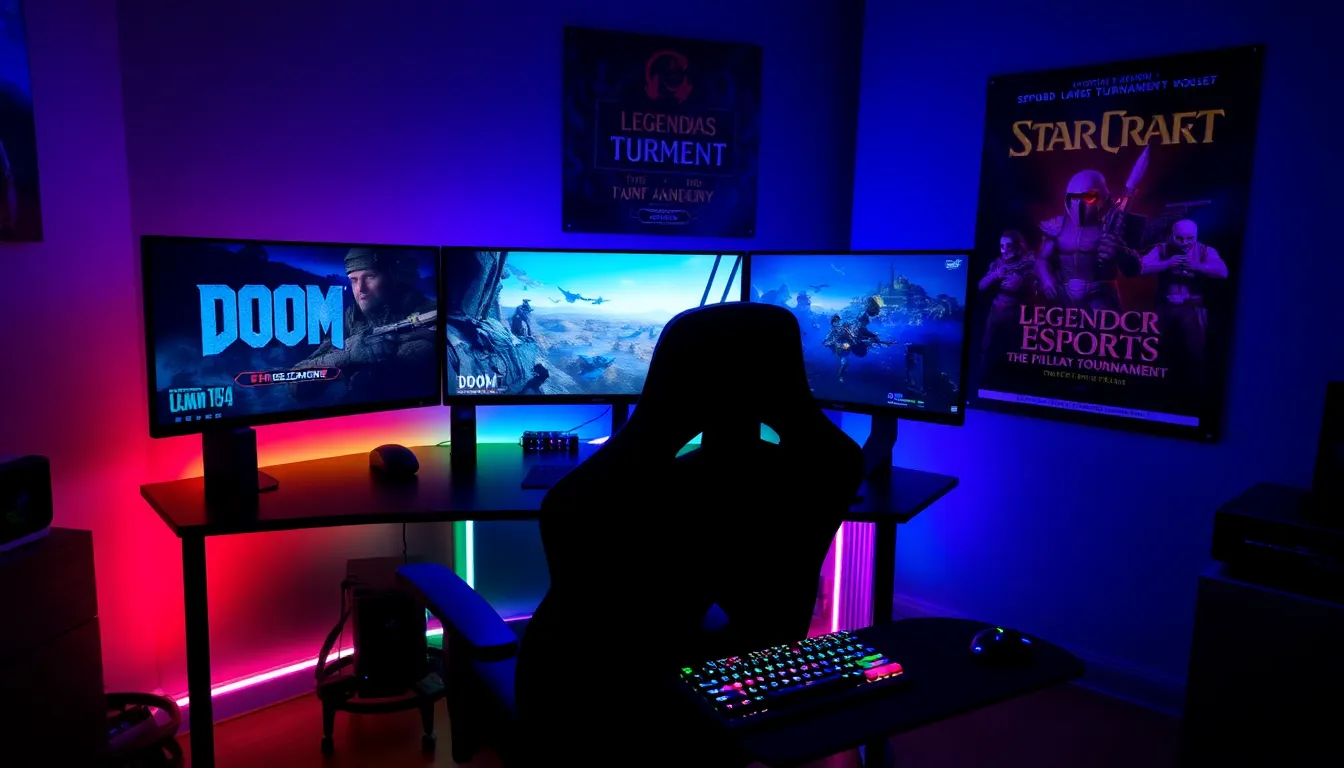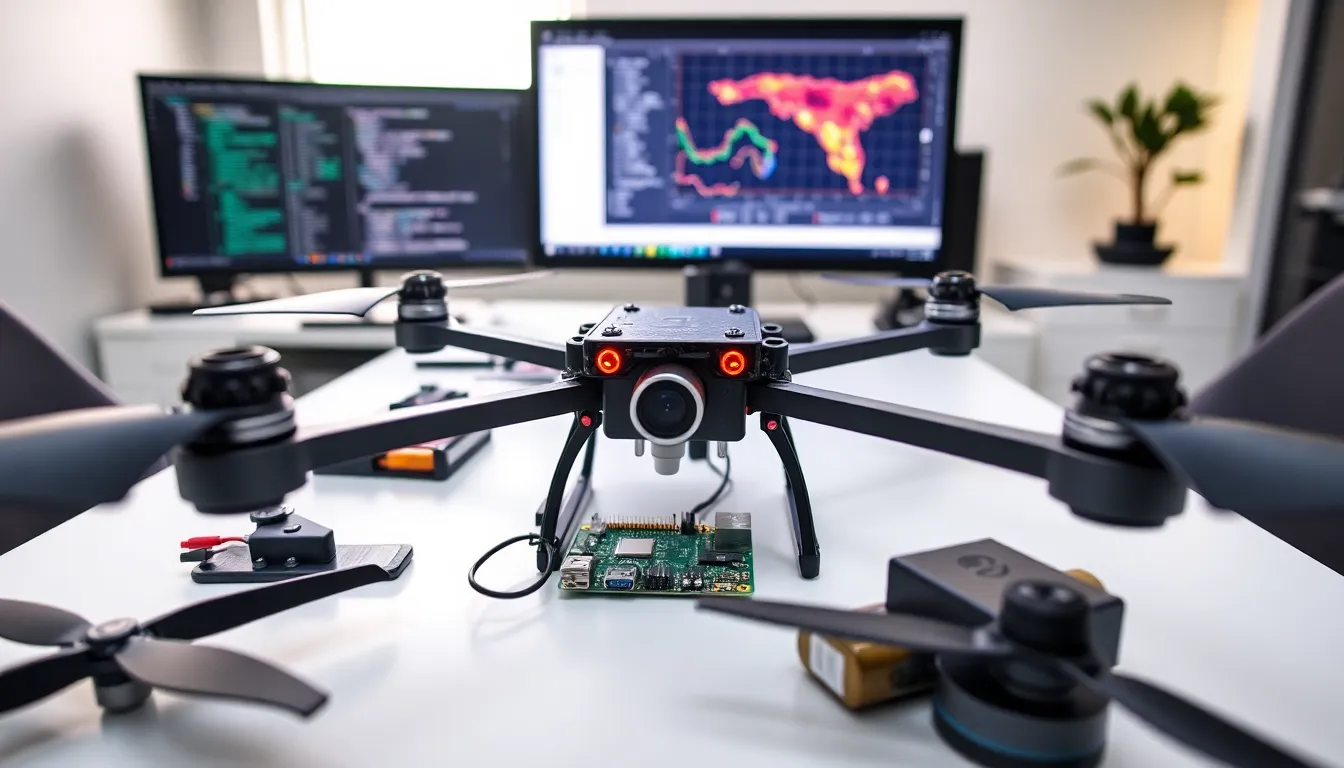In an era defined by ever-evolving technology, PC gaming stands out as a vibrant and dynamic facet of the gaming world. It not only provides unparalleled experiences but also fosters a diverse community filled with passionate players. This article dives into the history, culture, and future of PC gaming, exploring its rich tapestry woven from innovation and engagement. From the evolution of hardware to the rise of competitive play, the journey of PC gaming is nothing short of fascinating.
Table of Contents
ToggleThe Evolution of PC Gaming

PC gaming has come a long way since its inception, evolving through various technological advancements and gaming trends. This section delves into key milestones that have shaped the landscape of PC gaming.
Key Milestones in PC Gaming History
The journey started in the late 1970s and early 1980s with primitive games like “Pong” and text-based adventures. As technology advanced, so did the complexity and quality of games. The introduction of graphic user interfaces (GUIs) in the 1990s, along with the transition from 2D to 3D gaming, marked significant shifts in how games were developed and played. Titles like “Doom” and “Quake” not only set standards for gameplay but also pioneered the first-person shooter (FPS) genre, laying the groundwork for competitive gaming.
The Rise of eSports and Competitive Gaming
The late 1990s and early 2000s saw the birth of eSports, a segment of gaming that transformed casual play into organized competition. Games like “StarCraft” and “Counter-Strike” fostered communities and tournaments, evolving into massive events with professional players and global audiences. Today, eSports involves millions of dollars in sponsorships, highlighting the potential of gaming as a career path and redefining entertainment in the 21st century.
Understanding the PC Gaming Community
The PC gaming community is diverse and expansive, offering a wide range of genres catering to various audiences. Understanding this community is crucial to appreciating the impact of gaming on modern culture.
Popular Genres and Their Impact on Gaming Culture
Within PC gaming, genres like RPGs, FPS, strategy, and simulation games flourish. Each genre contributes uniquely to gaming culture, influencing not just how games are played but also how communities form around them. For instance, RPGs often emphasize story and character development, fostering deep emotional connections among players and creating communities where narratives are shared and expanded.
Role-Playing Games (RPGs) and Their Appeal
RPGs have particularly thrived, offering immersive experiences that allow players to assume different roles in fantastical worlds. Popular titles such as “The Witcher” and “Final Fantasy” capture player imaginations through rich storytelling and character interaction. The appeal of RPGs lies in the freedom of choice and the ability to create a personalized narrative, which deeply resonates with players.
First-Person Shooters (FPS) and Competitive Play
First-person shooters have become a staple in PC gaming, blending fast-paced action with strategic gameplay. Understanding the hardware dynamics is vital for players seeking the ultimate gaming experience.
Hardware Requirements for Optimal Gaming Experience
To fully immerse in FPS games, specific hardware requirements must be met. A powerful CPU, high-end graphics card, sufficient RAM, and an SSD for quicker load times are essential to render graphics flawlessly and minimize lag. Players often discuss their gaming setups in community forums, sharing tips on maximizing performance while keeping systems cost-effective.
Choosing the Right Components for Your Gaming Rig
Selecting the right components can be daunting for newcomers. Beginners should consider not only budget but also compatibility between parts. Websites and review channels are abundant, guiding players in assembling their ideal rigs. Building a personalized gaming PC allows enthusiasts to customize their experience and enhance their gameplay.
The Importance of Graphics Cards and CPUs
Two critical components in any gaming rig are the graphics card and CPU. Their performance directly affects gameplay quality, graphical fidelity, and overall gaming experience.
As games become visually stunning and technically demanding, investing in cutting-edge GPUs and CPUs can make a significant difference. Also, optimizing settings can drastically enhance performance, showcasing the beauty of modern gaming without compromising on frame rates.
The Future of PC Gaming
The landscape of PC gaming is constantly evolving. With emerging technologies pushing boundaries, the future promises an exciting journey ahead for gamers.
Emerging Technologies Shaping the Gaming Landscape
Technologies such as VR (Virtual Reality) and AR (Augmented Reality) are reshaping how players interact with games, creating highly immersive environments. Machine learning and AI are also playing roles in personalized gaming experiences, tailoring gameplay based on player behavior and preferences.
Cloud Gaming and Accessibility
Cloud gaming emerges as a promising development, enabling players to stream games over the internet without the need for high-end hardware. This innovation could democratize access to gaming, allowing players using older systems to engage in the latest titles, so broadening the PC gaming community.
Conclusion
PC gaming continues to evolve, driven by technological advancements and a passionate community. As it progresses, the possibilities for innovation and engagement remain limitless. Players can look forward to a future where gaming becomes more accessible, immersive, and interconnected than ever before. Whether through competitive play or solitary adventures in expansive worlds, the spirit of gaming thrives, proving that it’s not just a pastime, it’s a cultural phenomenon.





